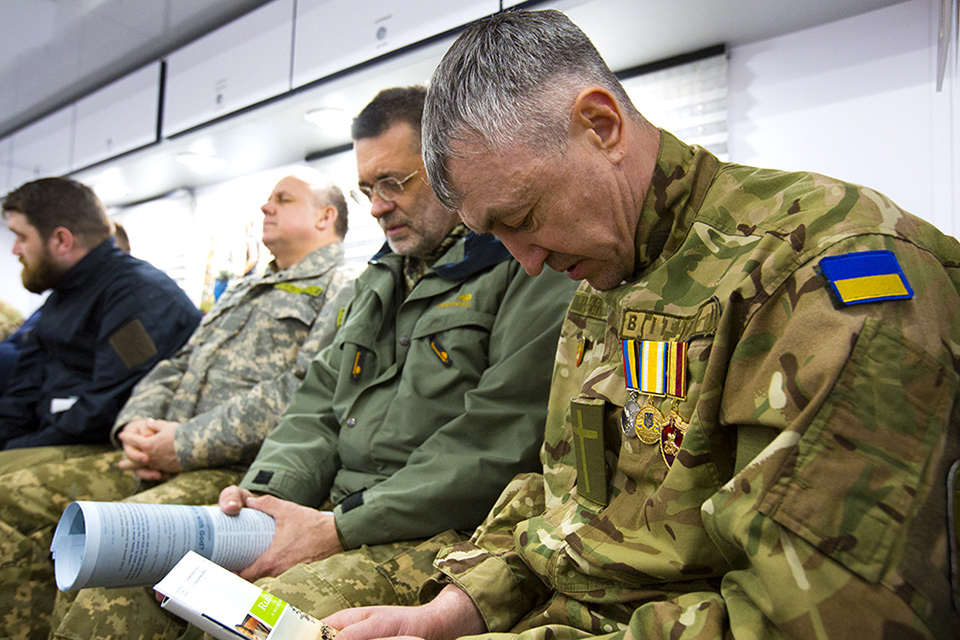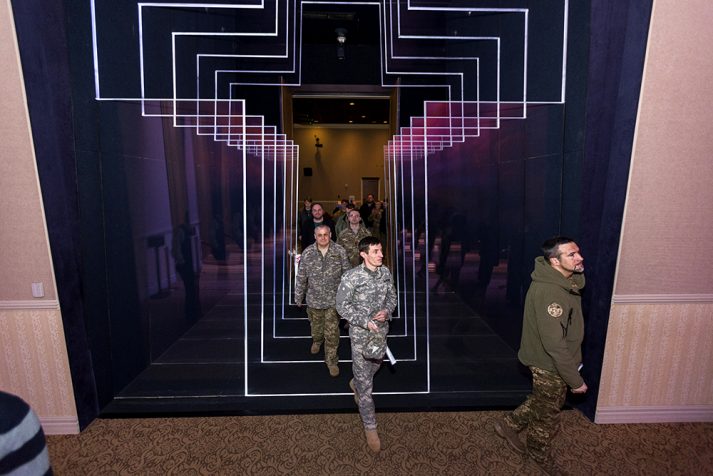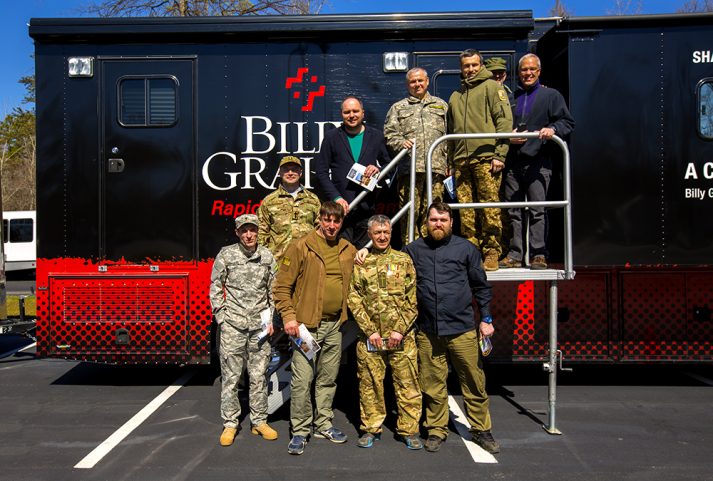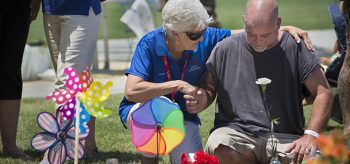
On a Wednesday in March, a group of 10 Ukrainian chaplains sat around a table at the Billy Graham Evangelistic Association. Some asked questions, others took notes. But they all were absorbing every bit of information shared during a day-long training session with the Billy Graham Rapid Response Team.
Chaplaincy is in its infancy in Ukraine, and these mostly self-employed volunteers were hungry to learn more about sharing hope in the midst of crisis. They also wanted to know more about the logistics of running a chaplain program.
Roughly 300 strong and unofficially recognized, Ukranian chaplains are simply doing the best they can in their country. They leave their families for long stretches to serve unarmed alongside soldiers on the battlefield and within communities affected by war. The lucky ones might find a bullet-proof vest to wear, but comfort isn’t their priority. Their only goal is to point people to Jesus.
“I love the Lord, and I love people, and I live on this earth, and I can serve them,” chaplain Oleg Tkachenko said through an interpreter when asked why he served. “I want my country to be a lot safer for me and for my family. And I fulfilled the Lord’s order that we have to be salt to this world.”
Global Christian Support arranged for the 10-day retreat that involved a stop at BGEA for training. Sergey Dzyk, with Global Christian Support, helped interpret the meeting and said this type of training—particularly what to say and what not to say as well as real-life scenarios—is invaluable.
“When the chaplain sees that somebody died right there, and that soldier is sitting right next to [the deceased], and he’s crying so he has a lot of questions to God, to people and to everybody,” Dzyk said. “The first person he sees is a chaplain, and he’s definitely going to blow up on the chaplain and say, ‘Hey, where is your God?’
“They need to see a hands-on experience from someone who has been in that situation to see, ‘Hey that’s how you respond.’”

The Rapid Response Team, now entering its 16th season, has plenty of experience to draw upon and share.
Jeff Naber, manager of chaplain development and ministry relations for the Rapid Response Team, previously visited Ukraine to help conduct a Sharing Hope in Crisis course. There, he connected with Valeriy Trufanov, who also made the trip to the United States. Trufanov hopes to one day implement the RRT’s approach to chaplaincy or what he considers to be the “American model.”
“It’s just amazing the door that is wide open for ministry,” Naber said. “And to know, not to sense, but to know what the heart of these leaders are.
“The heart of the evangelical chaplains of Ukraine is to promote the Gospel 100 percent with anyone in their country. And the heart of the RRT is to help them do that.”



